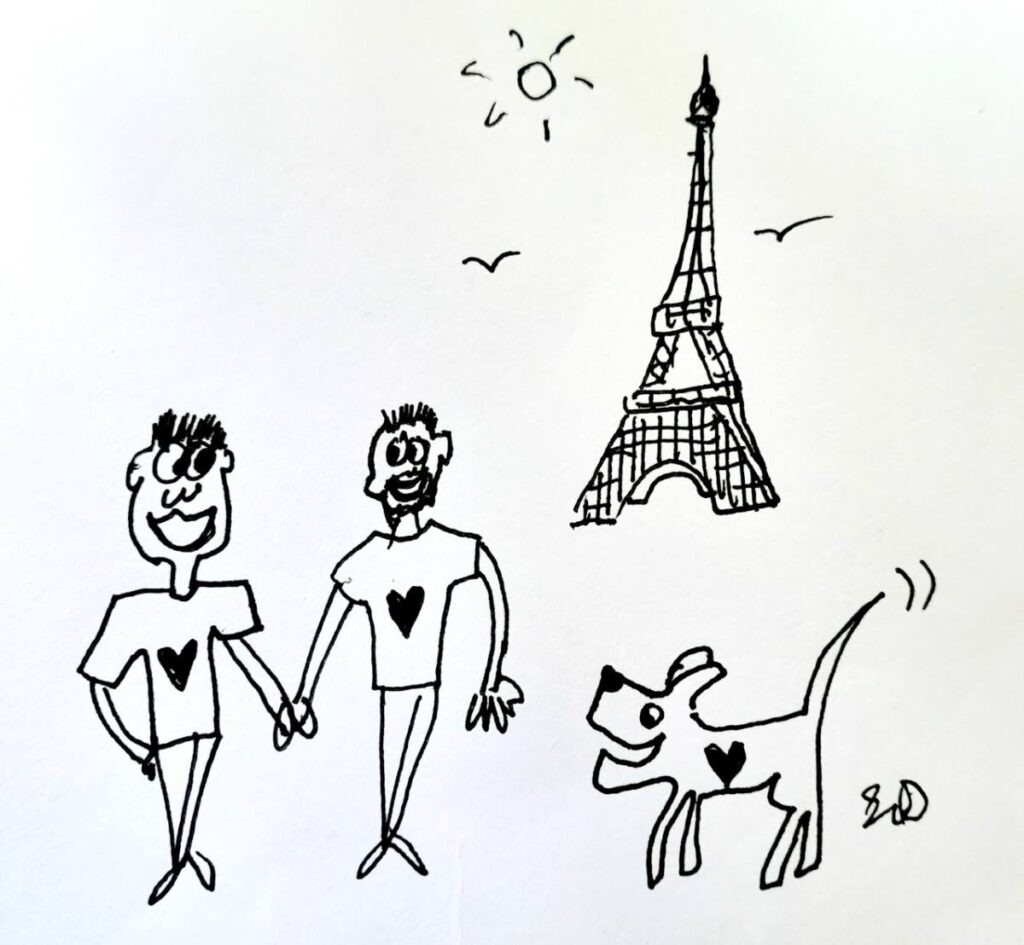What are we spreading?

It was recently reported that two men in Paris, involved in a "non-exclusive relationship" were diagnosed with monkeypox – a disease classified by the World Health Organization (WHO) as a PHEIC (public health emergency of international concern).
Twelve days after the men first showed symptoms, their Italian greyhound also started displaying signs of having been infected.
Under a post of this report on a local Facebook news page, many of the comments (eg. “What did those men do to the dog?”) implied or openly suggested that the men had had sexual interactions with their pet.
This level of thinking is, to put it mildly, unfortunate. It spreads a "virus" worse than the monkeypox – the virus of ignorance and its "mutation," stigmatisation.
I am more prone to believe that the men were pet owners who loved their dog, fed him/her, showed affection through petting and cuddling, took him/her for walks – and indulged in any of the range of activities expected of the average responsible, caring pet owner.
As a dog in Paris would more likely be kept indoors (as opposed to the average TT dog that is kept outside as a "yard dog"), the men would have spent a lot of quality time indoors, in close contact with their pet. The dog, in return, would most likely have licked exposed and accessible parts of their skin (eg hands, arms, face) as a typical show of canine appreciation and reciprocated love.
It is said that monkeypox can be spread through close, usually skin-to-skin contact, intimate or otherwise. Transmission is possible through direct contact with the pustules or body fluids (inclusive of respiratory secretions) of an infected individual, as well as via contact with everyday surfaces and with unwashed sheets, towels, clothing, etc that have been used or touched by an infected individual.
With all of those possible avenues of contraction, it is not surprising that the men’s dog also became infected. It is understandably advised that people who have contracted monkeypox should avoid contact not only with other humans, but with animals – both domestic and wild – until they have recovered.
If no close contact has been made with a pet after one’s first show of symptoms, it is advisable to find someone living in another household to care for the pet until its owner recovers. As with covid protocols, the home of the recovered individual should be sanitised thoroughly before the pet is returned to it.
This advice would most likely be followed in households where inhabitants care about their pets and take their safety and wellbeing sufficiently to go through the effort of finding an external caretaker for the animal, while they the (infected ones) are at home in isolation.
On the contrary, when covid first appeared in TT, many people, struck by another virus – panic, with symptoms of irrational behaviour – started dumping their pets.
Two of many possible reasons for this included lack of money to buy pet food (due to job loss) and fear that animals were potential vectors of the virus.
It is unfortunate that some people, having read about the possibility of human-dog/dog-human transmission of monkeypox, might experience increased fear of exposure to homeless dogs and cats and may scorn them more. This reaction might even be expressed towards their own pets if those pets are allowed to roam beyond the confines of the home.
At the time of writing this article, as far as I am aware, there has been no documented case of monkeypox in TT. In the event that it reaches these shores, I suggest that we as a nation do not respond to its arrival with heightened alarm and extreme reactions to and/or judgment of each other or animals.
We live in a world that is rife with viruses. As soon as one virus seems to be "over," or at least under some form of "control," a mutation of an existing virus, an old one with suddenly increased infection rate or an entirely new one will pop up.
To live in constant fear of these manifestations is counterproductive to self and society and can propagate ignorance and unsavoury human behaviour. It is more beneficial to examine what life-enhancing (as contradictory as that may sound) lessons and messages the viruses could be bringing to humanity.
Perhaps they are telling us to focus on spreading the right things – love, not fear; acceptance and understanding, not judgment; responsibility and care for all, not carelessness; right thinking and wisdom, not ignorance.


Comments
"What are we spreading?"